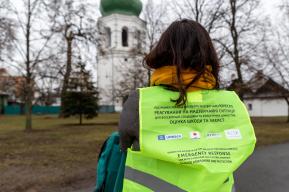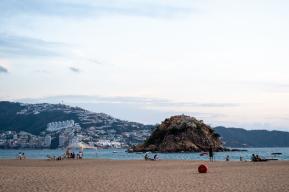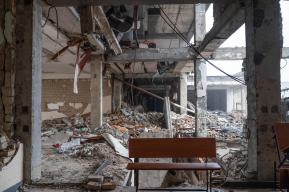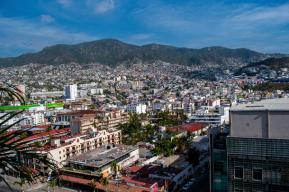News
UNESCO’s support for Ukrainian women artists helps them keep their creativity alive
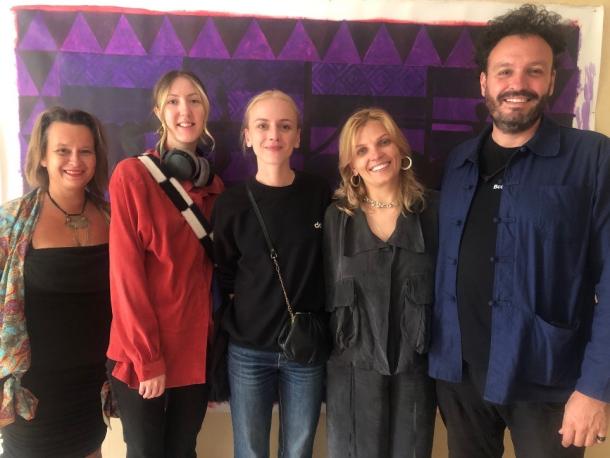
Since the start of the war on 24 February 2022, more than 7.1 million refugees from Ukraine have fled across Europe and many more have been displaced inside their country, among them artists and cultural workers. As part of its emergency response, UNESCO has initiated two activities through its Heritage Emergency Fund to support Ukrainian artists, both inside and outside the country, helping to ensure the continuation of artistic creation and access to cultural life. Supporting displaced women artists and cultural professionals has been the focus of UNESCO’s efforts in host countries.
These women artists are keeping the heartbeat and hopes of Ukrainian communities alive through their work. This project represents a lifeline – it not only connects people and communities near and far, but also fosters creativity, employment, networks and opportunities that will prove useful when they return home
To date, 30 Ukrainian women artists have been granted a three-month art residency that will enable them to continue creating after fleeing the war. They are painters, textile artists, film makers, photographers, costume designers, graphic designers, musicians and much more. They have been welcomed in France, Germany, Hungary, Montenegro, Norway, Poland, and the United Kingdom. With the support of partners, these unique UNESCO-Artists at Risk residencies provide displaced women artists with a place to live and financial support during a period of upheaval; they are a lifeline to many.
“A couple of times a day… I want to go back to Ukraine” Says Vasylyna, a contemporary textile artist participating in the programme. As for many Ukrainians, the decision to leave home was not an easy one to take.
Vasylyna, Nina and Evelina are still finding their feet in Paris. Nina left her home in Kyiv on the first day of war and fled to her hometown of Kremenchuk. She recounted how her entire family spent nights in the basement while air sirens raged. She then traveled to Poland, Germany and finally arrived in France. She stayed with friends, strangers, and families over the course of several months, and speaks with gratitude about the warmth she received throughout this difficult time.
The three women share a spirit of solidarity as they describe their journeys. The weight of uncertainty hangs over the conversation. All three would like to go back home.
A couple of times a day… I want to go back to Ukraine
Adapting to a new creative environment
These three artists have creative plans for their residencies in Paris, each reflecting in her own way on the impact of the war in Ukraine.
As a contemporary textile artist, Vasalyna often works with transparent materials, including fabrics and also water to create objects, sculptures, and installations. It is complicated to transport these works, especially since the onset of conflict when she had to move quickly. “I want to create flat art now”, she explained, “Art I can take with me back home or send to another country. Art that I can sell more easily as well… that can support somebody one day.”
Evelina is an artist who works with glass. She has had to change her practice because of the war and other circumstances out of her control. “I am not afraid to try to use another material now… In Lviv I had a workshop, I rented a place where I made blown glass with a professional, but here in Paris it is so expensive…I can’t afford it. So, I will create something else. And like everybody, my soul will cry…” Evelina is also focused on learning new techniques within her artistic practice. She tells the story of a national sculpture that has been damaged in the city of Mariupol and how she dreams to help in bringing it back to life one day.
Nina makes electronic music. Her podcast highlighting the underground music scene across Ukraine and featuring the stories of Ukrainian musicians amid the war has gone viral and currently airs in more than 10 countries. During the residency, she wants to focus on the podcast and on finding ways to promote Ukrainian musicians. She also wants to get more involved with the artistic scene in Paris.
The three artists are certainly hopeful about the months ahead. They see their residencies as opportunities for growth and learning in a very difficult context. They are learning French, improving their English, and carefully navigating a new environment and an uncertain future, while pouring their emotions into their art.
Stay tuned to hear more from these artists and others in Ukraine, as we follow their creative paths in the months ahead.
These activities are supported by the UNESCO Heritage Emergency Fund. We wish to thank its donors: the Qatar Fund for Development, the Government of Canada, the Kingdom of Norway, the French Republic, the Principality of Monaco, ANA Holdings INC, the Republic of Estonia, the Kingdom of the Netherlands, the Slovak Republic, the Grand Duchy of Luxembourg, the Principality of Andorra, the Republic of Serbia.


